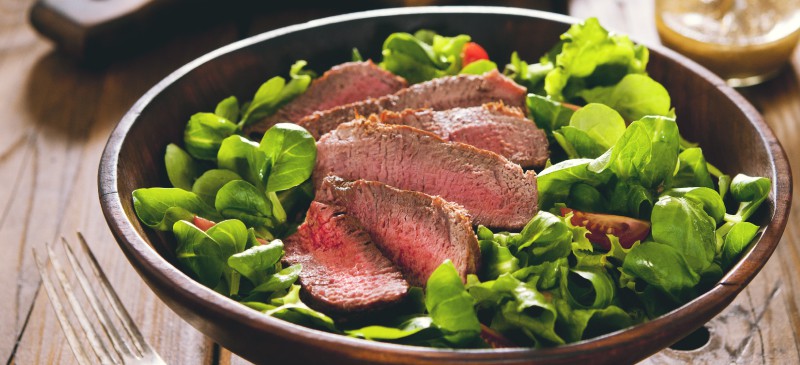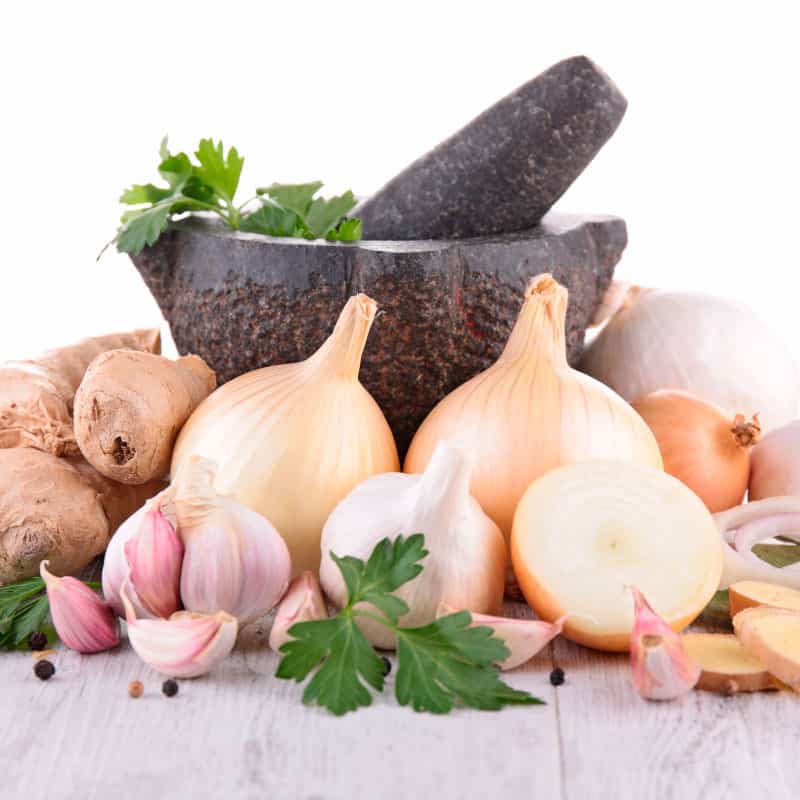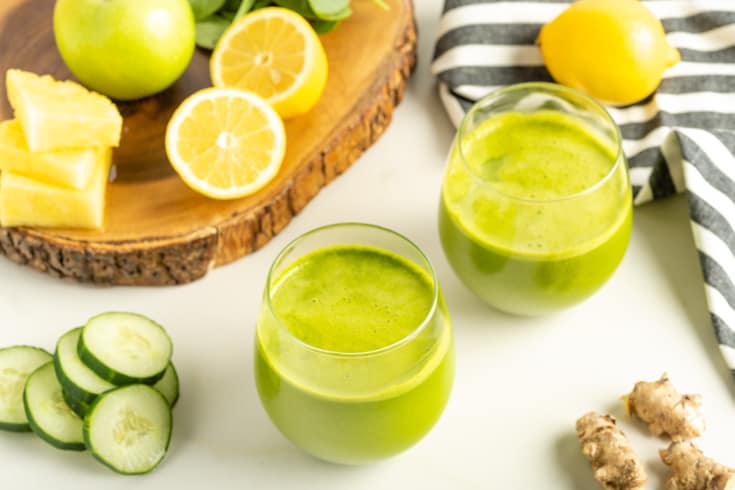This Dr. Axe content is medically reviewed or fact checked to ensure factually accurate information.
With strict editorial sourcing guidelines, we only link to academic research institutions, reputable media sites and, when research is available, medically peer-reviewed studies. Note that the numbers in parentheses (1, 2, etc.) are clickable links to these studies.
The information in our articles is NOT intended to replace a one-on-one relationship with a qualified health care professional and is not intended as medical advice.
This article is based on scientific evidence, written by experts and fact checked by our trained editorial staff. Note that the numbers in parentheses (1, 2, etc.) are clickable links to medically peer-reviewed studies.
Our team includes licensed nutritionists and dietitians, certified health education specialists, as well as certified strength and conditioning specialists, personal trainers and corrective exercise specialists. Our team aims to be not only thorough with its research, but also objective and unbiased.
The information in our articles is NOT intended to replace a one-on-one relationship with a qualified health care professional and is not intended as medical advice.
E. coli Symptoms: 6 Natural Ways to Help Fight the Infection (+ 4 E. coli Prevention Tips)
June 19, 2018

Did your stomach start cramping and feeling a bit off after you ate that beef burger? Did you sprint to the bathroom after enjoying that romaine lettuce salad? You may have an intestinal infection caused by E. coli — one of the most dreaded foodborne illnesses in the world. Learn more about E. coli and E. coli symptoms below.
What Is E. Coli?
Escherichia coli, more commonly abbreviated as E. coli, is a type of bacteria found in the intestines of humans and warm-blooded animals.
Nearly all forms of E. coli are technically harmless, but one specific strain of this bacteria (known as E. coli O157:H7) causes serious food poisoning. (1) Every year, more than 96,000 people fall ill to food poisoning caused by E. coli. This results in more than 3,000 hospitalizations, more than 30 deaths and an average of $405 million in health care costs every year. (2)
If you eat food contaminated with E. coli, it can infect your intestines and cause a wide range of serious health complications.
Signs and Symptoms
Because it’s an intestinal infection (and more rarely an E. coli urine infection), you’ll feel discomfort in your digestive tract. The most common E. coli symptoms include:
- Loss of appetite
- Nausea
- Gas and flatulence
- Chronic fatigue
- Sudden diarrhea that is very watery
- Bloody stools
Most people don’t experience a fever, although a light fever can sometimes be one of the E. coli symptoms. And while most people feel nauseated, many people don’t end up vomiting when they have an E. coli infection.
Symptoms of an E. coli infection show up within 10 days of being exposed to the bacteria, and the E. coli symptoms themselves last up to 10 days. (3) The average person feels better in six to eight days.
Causes and Risk Factors
All E. coli infection symptoms, and the infection itself, come from swallowing the bacteria. (4) Because E. coli lives in the intestines of animals and humans, it gets excreted in human and animal feces. If those feces contaminate your food or water, you can then be exposed to the E. coli bacteria.
Food is the most common risk factor. Approximately 65 percent of E. coli outbreaks come from contaminated food or water. (2)
What foods are associated with E. coli?
In terms of the riskiest foods, here are the E. coli facts:
- Beef causes 55 percent of E. coli infections (ground beef is the worst offender, followed by steak).
- Leafy greens cause 21 percent of infections.
- Dairy causes 11 percent of infections.
- All other meat account for 6 percent of infections.
Everyone is at risk for contracting an E. coli infection, but a few risk factors can raise your odds: (5)
- Age: Seniors and young children are more likely to suffer from an E. coli outbreak.
- Diet: If you enjoy meat, especially beef, you raise your risks. This is especially true if you eat undercooked meat.
- Timing: There are more E. coli outbreaks between the months of June and September. This may be because this is when many animals start to “shed” (excrete) the bacteria in their feces.
Is E. coli contagious? Is a person with E. coli contagious?
Person-to-person contact, or contact with animals at a farm, petting zoo or park, account for 20 percent of E. coli cases. If you ingest fecal matter from someone with E. coli, you may contract the infection.

Conventional Treatment
An E. coli infection is self-limiting, meaning that most people recover without needing any sort of medical treatment. (6) If you or someone you know is suffering from a suspected case of E. coli, contact a health professional immediately, because while the illness usually resolves on its own, there can be severe complications.
There are currently no conventional E. coli treatments to cure the infection. In most cases, E. coli treatment revolves around relieving the E. coli symptoms and side effects:
- Rest and avoid physical activity to reserve your energy.
- Drink lots of fluids to prevent dehydration due to diarrhea and vomiting.
The infection must run its course on its own. In general, antibiotics and anti-diarrheal drugs are not recommended by health care professionals. Antibiotics are not effective and can even increase your risks for complications, and anti-diarrheal medication stops your body from eliminating the toxins that are making you sick.
In severe cases, hospitalization can help stabilize your E. coli symptoms. Depending on the situation and level of dehydration you’re experiencing, doctors may use an array of treatments like IV fluids and electrolytes, plasma exchange and kidney dialysis.
How to Help Manage Symptoms and Boost Recovery
While there is no “cure” for E. coli, you can provide your body with the natural support it needs to fight the infection and repair your gut from the E. coli infection.
1. Drink Plenty of Fluids
When you have an E. coli infection, you’re at a very high risk of becoming dehydrated. Drink lots of clear fluids to replenish your fluids.
Staying hydrated also has an additional health benefit when it comes to infections: All of those fluids that you’re drinking will help to flush bacteria and toxins out of your system, thus speeding up your recovery and healing. (7)
2. Ease Up on the Symptom-Aggravating Foods
When you have diarrhea, nausea or intense abdominal cramping, the last thing you want to do is put more dietary stress on your body. If you’re suffering from an E. coli infection, eliminate high-fiber foods, heavy foods that are rich in fat, and dairy. These are known to make E. coli symptoms worse. (8)
3. Try an Herbal Tea
According to research published in the Journal of Pharmaceutical Sciences and Research, several herbal teas can have powerful medicinal benefits when it comes to nausea and other E. coli symptoms: (9)
- Both peppermint tea and ginger root tea can improve digestion and calm an upset stomach.
- Chamomile has calming, anti-inflammatory properties that may help soothe abdominal cramps.
- Slippery elm is often used for reducing stomach cramps.
- Cardamom tea can help with gas and flatulence.
4. Take a Probiotic
When you have an E. coli infection, the bacteria balance in your gut is thrown off balance. (10)
Probiotics can help ease the symptoms of E. coli, and promoting the growth of healthy gut bacteria may actually help to stop the spread of the E. coli and other unfriendly bacteria.
Acidophilus is one of the best probiotic choices for E. coli. (11) This friendly bacteria produces antimicrobial compounds in your gut, and these specific compounds stop or slow the growth of unfriendly bacteria like salmonella, E. coli and even candida yeast.
5. Sip Apple Cider Vinegar
Apple cider vinegar is a traditional remedy for a wide range of health issues. E. coli infections are no exception. The Milton S. Hershey Medical Center at PennState reports that apple cider vinegar may have antimicrobial properties useful for treating an E. coli infection. (12) The center recommends adding two teaspoons of apple cider vinegar to a cup of warm water and drinking this a few times a day.
6. Try Barberry
Barberry (Berberis vulgaris) has been used in traditional medicine for centuries to treat E. coli. (12)
A study published in the Asian Pacific Journal of Tropical Medicine reports that in lab tests, berberine (the active compound in the plant) was added to drug-resistant E. coli bacteria. “The results indicate clearly that berberine may serve as a good antibacterial against multi drug resistant E. coli.” (13)
And in animal trials conducted with rabbits, mice and rats, berberine inhibited the growth of E. coli in the animals’ intestines. (14)
Prevention
When it comes to E. coli, prevention is the best medicine. And because an E. coli infection always comes from contaminated foods and surfaces, there are very straightforward ways to protect yourself from an E. coli outbreak. (15)
1. Keep it Clean
You may expose yourself to contaminated feces in public spaces, bathrooms, and more. It’s important to wash your hands regularly, especially when you’ve touched a high-risk surface or been in a high-risk environment like:
- Bathrooms
- Dirty diapers
- Environments with animals, such as petting zoos and country fairs
- Raw meat and produce
Because an E. coli infection comes from ingesting the bacteria, it’s also critical that you wash your hands before eating or touching any surface that goes near your mouth.
2. Prep Food Properly
Keep raw meat separate from your other foods until it’s cooked. Keep food chilled in your fridge or freezer to avoid bacteria growth. Wash all your produce well under running water. And cook your meat well to kill the E. coli bacteria.
Pay special attention to beef as it’s the primary cause of most E. coli outbreaks. For steaks and roasts, the meat should be cooked until the internal temperature hits 145 degrees F or higher. Ground beef is even riskier than steak and should be cooked to a minimum internal temperature of 160 degrees F.
However, E. coli can still sometimes survive high heat. To truly minimize your risks, consider reducing your meat consumption or even switching to a plant-based diet.
3. Ensure Your Gut Health
Taking probiotics regularly — not just when you have an E. coli infection — can keep your gut populated with friendly bacteria that reduces your risks of an E. coli invasion. (11)
Additionally, limit antibiotic usage, eat more fiber, and eat less fat, dairy and red meat. These habits keep your intestinal tract healthy and more resilient and resistant to infections. (16)
4. Watch Out for Dirty Water
When you’re enjoying a swimming pool or a body of fresh water, such as a stream or lake, try to avoid getting water in your mouth, eyes, ears or nose, and avoid swallowing any water. Dirty fresh water may be contaminated with feces.

Precautions
While most cases of E. coli resolve themselves in a few weeks, intestinal infection can result in serious dehydration-related complications. For example, in severe cases of E. coli, dehydration can be so extreme that it results in kidney failure and sometimes even death.
Talk to your doctor immediately if you suspect you have food poisoning, even if your symptoms seem mild. Your doctor may ask for a stool sample so he or she can conduct an E. coli gram stain to identify your infection. Additionally, watch out for warning signs like:
- Diarrhea that hasn’t gone away after four days (or a couple days if the person with the infection is a child or baby).
- Bloody stool when you go to the bathroom.
- Stomach cramps that don’t decrease in severity after you go to the bathroom.
- Vomiting that lasts for more than a day.
- Symptoms of severe dehydration, such as dizziness or not being able to urinate.
Final Thoughts
More than 90,000 people experience an E. coli infection every year:
- E. coli is a bacteria found in the intestines of humans and all warm-blooded animals.
- Infections send more than 3,000 people to the hospital every year.
- E. coli symptoms include loss of appetite, nausea, gas and flatulence, chronic fatigue, sudden diarrhea that is very watery, and bloody stools.
- All infections come from swallowing the bacteria, with contaminated food (especially beef) being the primary source of concern.
- Everyone is at risk for an E. coli infection, but age (seniors and young children), diet (undercooked or poorly prepped meat) and timing (June through September) increase infection risks.
- Because it can result in serious complications, you should work with your doctor to treat and manage your E. coli symptoms. Rest and staying hydrated are common conventional treatments (there is no cure, and antibiotics don’t work on E. coli).





